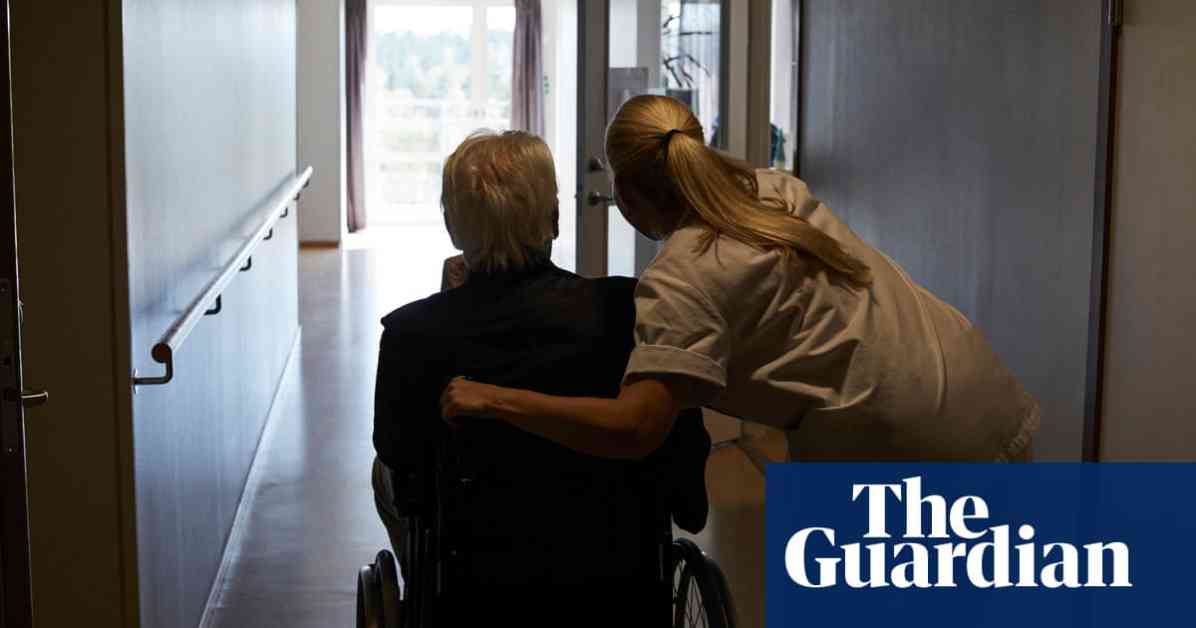Foreign care workers in the UK are facing increasing levels of exploitation, with reports of abusive practices on the rise. The Royal College of Nursing (RCN) has revealed that the number of complaints from migrant care workers has surged sixfold in the last three years, shedding light on the systemic issues within the British care system.
Exploitative Contracts and Demands for Payment
According to data from the RCN, the organization received 134 complaints in 2023-24 from foreign care workers who alleged that their employers were demanding exorbitant sums of money to cover various “hiring costs” if they chose to leave their jobs. This figure represents a significant increase from just 22 complaints reported three years prior. The rise in complaints about repayment clauses, with some reaching as high as £10,000, underscores the vulnerability of migrant workers in the care sector.
Nicola Ranger, the RCN general secretary, expressed concern over the exploitation faced by migrant care workers, stating, “Rogue employers appear to be forcing migrants to pay thousands of pounds just to leave jobs and threatening them with deportation. Those who come to the UK to care for the vulnerable deserve so much better than this exploitation.” Ranger emphasized that the reported cases of exploitation are likely just the tip of the iceberg, with many migrant workers feeling intimidated and fearful of speaking out due to the risk of repercussions from their employers.
Impact of Recruitment Policies and Staffing Crisis
The surge in exploitation cases comes in the context of a staffing crisis in Britain’s social care sector, exacerbated by the COVID-19 pandemic and post-Brexit immigration controls. In response to the shortage of care workers, the previous government implemented measures to make it easier to recruit staff from abroad, leading to a significant increase in the number of international hires in the adult social care sector.
Between 2020-21 and 2023-24, the number of foreign workers recruited into adult social care soared from 10,000 to 94,000, as reported by Skills for Care. While this influx of international workers was intended to address staffing shortages, it has also exposed migrant care workers to exploitation and mistreatment by unscrupulous employers seeking to take advantage of their vulnerable position.
Exploitation and Legal Challenges
The Guardian’s investigation earlier this year revealed numerous cases of migrant care workers being exploited by British agencies, with workers being required to pay exorbitant “visa processing costs” in exchange for promised employment in the UK. Many of these workers found themselves in situations where the guaranteed work did not materialize, leaving them financially burdened and without legal recourse.
In response to these revelations, Yvette Cooper, then the shadow home secretary, pledged to launch an investigation into the exploitation of migrant care workers if Labour were to win the election. Some migrant workers have taken legal action to seek redress for the mistreatment they have endured, with one employment judge ruling in favor of a worker who was denied their contracted hours, potentially entitling them to compensation exceeding £10,000.
The RCN has documented cases of care workers attempting to leave their jobs only to be confronted with demands for substantial repayment fees, often disguised as “hiring costs.” These cases highlight the pervasive nature of exploitation in the care industry, with migrant workers facing threats and intimidation from employers who seek to exploit their precarious immigration status.
In one disturbing case, a care worker reported experiencing severe bullying and harassment in the workplace and was subsequently informed that they owed £10,000 in repayment fees upon attempting to resign. Another worker who faced assault and racial abuse at work was forced to quit their job, only to be presented with a demand for over £3,000 in visa costs. These instances underscore the urgent need for action to protect migrant care workers from exploitation and abuse.
Signs of Trafficking and Modern Slavery
Legal experts have raised concerns that some practices within the British care industry exhibit signs of human trafficking and modern slavery, particularly in relation to punitive repayment clauses imposed on migrant workers. The Gangmasters and Labour Abuse Authority reported receiving 123 reports of modern slavery and human trafficking in the care sector in 2023, with the sector accounting for more than half of all reports of forced labor.
The exploitation of migrant care workers not only undermines the integrity of the social care sector but also poses significant risks to the well-being of vulnerable individuals who rely on these workers for essential support. The RCN has called for a government investigation into labor practices in the care industry to address the systemic issues that perpetuate exploitation and abuse.
Ranger reiterated the urgent need for action, stating, “The exploitation being allowed to spread is deeply inhumane and undermines the entire social care sector. Ministers were right to commit to an investigation during the election campaign, and this must now happen with urgency. Lives are being destroyed every day, and this cannot wait. We need action to protect our migrant care workers and raise standards in the sector.”
In response to the escalating reports of abuse and exploitation in the adult social care sector, a government spokesperson acknowledged the need for urgent action, stating, “There has been an unacceptable rise in the recorded abuse and exploitation of care workers in the adult social care sector.” The government has committed to addressing these unethical practices and working collaboratively across the sector to implement safeguards and protections for migrant care workers.
As the exploitation of migrant care workers continues to be a pressing issue in the UK, it is imperative that comprehensive measures are taken to safeguard the rights and well-being of these vulnerable individuals. The voices of migrant care workers must be heard, and their concerns addressed through meaningful policy changes and enforcement mechanisms that hold employers accountable for their actions. Only through collective action and solidarity can we ensure a fair and just working environment for all care workers in the UK.












